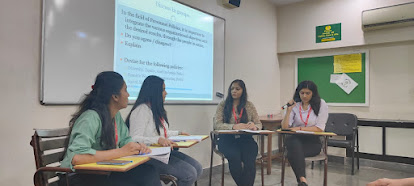1. 77% of HEM Agarbatti’s workforce comprises women.
HEM Agarbatti, a company that manufactures and exports incense and home aroma products, has 70 per cent women in its workforce. Most of its departments, including human resources, accounts, and R&D are headed by women. About 45 per cent of the heads of departments are women. In order to promote gender equality today so that sustainability is ensured tomorrow, the Company has taken several measures.
In addition to comfortable furniture and fixtures at the workstations, it offers regular health checkups and also offers digital literacy programmes. Its women enjoy transportation services too, which ensures their safety. No wonder, some women staff members at its Mulund plant have been working with HEM for over 20 years. During the pandemic, HEM supported all its women by assuring them stability and flexibility. As Rahul Shah, business development head, HEM Corporation, declares, “We follow the slogan “Gender equality today for a sustainable tomorrow,” recognising the contribution of women and girls around the world, who are leading the charge on climate change adaptation, mitigation, and response, building a more sustainable future for all”. He adds that, the Company has always “believed in empowering women through employment” and extending the “acceptance and recognition they deserve, irrespective of their gender”. The Company is celebrating women’s empowerment on Women’s Day 2022, by dedicating this Women’s Day to all working women across the country.
2. ABB India rolls out gender-neutral policy on parental leave.
ABB India has announced a gender neutral parental leave policy wherein both parents of a new born or a newly adopted child up to three years of age will be entitled for the leave benefits. To make it more inclusive, the policy has also been extended to LGBTQ couples and co-habiting partners, adoptive and surrogacy commissioning parents.
The gender-neutral parental programme is part of the Company’s global parental policy which was introduced last year. As per the policy, the secondary caregiver is entitled for a four-week parental parental leave and the primary caregiver is entitled for 26 weeks of parental leave, as per the maternity law in India. The new parental policy is also part of ABB’s Global Diversity & Inclusion Strategy 2030.
With this gender-neutral and inclusive measure, the firm hopes to provide its employees “the much-needed time to be fully invested in their families and be present for important milestones”.
Sharma adds, “We believe the focus on such gender-neutral programs will cascade across various sectors to build more inclusive workplaces, as the Indian industry strides into the next level of sustainable growth.
3. Googlers to return to office from April 4.
Employees at Google will be required to return to work starting April 4. As per this latest mandate, Googlers will have to work from office about thrice a week across some of its offices in the US, UK and Asia Pacific. The number of ‘in-office’ days will differ from team to team as per the work requirements.
Googlers in the San Francisco Bay Area have already been officially informed of the decision to move to the hybrid work week. The employees who are not ready to return to work just yet, will have to seek a formal extension of remote working.
In the last eight odd months, about 14,000 Googlers, globally, have sought to get transferred to new locations or have opted for 100 per cent full remote working. Only about 15 per cent have been refused the request. That means, about 85 per cent employees have been granted their request for transfer or permanent remote working.
It is a must for employees to be fully vaccinated against COVID-19 or carry a document that explains their exemption, if any, before returning to office. Those Googlers who are unvaccinated and do not have an exemption document to support their status will either have to obtain a formal approved exemption or apply for permanent remote work.



